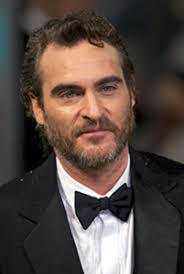Last Updated on April 10, 2025 by Bertrand Clarke
Joaquin Phoenix. The name conjures images of intense performances, a brooding presence, and a dedication to his craft that borders on obsession. He’s not your typical Hollywood star, polished and predictable. Instead, he’s an enigma, an actor who embraces the darkness and vulnerability that often lies beneath the surface of the human experience. But to understand Joaquin Phoenix, the artist, one must delve into the unconventional and often tumultuous journey that shaped him.
A Nomadic Childhood Forged in Idealism:
Born Joaquin Rafael Bottom on October 28, 1974, in San Juan, Puerto Rico, his story began far from the glitz and glamour of Hollywood. His parents, John and Arlyn Bottom, were devout members of the Children of God, a controversial religious cult. The family, including his siblings River, Rain, Liberty, and Summer, traveled extensively throughout South America, living a nomadic life, proselytizing for the group.
This unconventional upbringing instilled in Joaquin a unique perspective on the world. While the family initially embraced the cult’s teachings, they eventually grew disillusioned, witnessing practices they deemed harmful and exploitative. In 1977, they severed ties with the Children of God and, seeking a fresh start, changed their surname to Phoenix, symbolizing their rebirth.
The transition to a more conventional life in the United States was challenging. The family struggled financially, and Joaquin, along with his siblings, began performing on the streets and in talent shows to earn money. This early exposure to the entertainment world, born out of necessity, inadvertently laid the foundation for his future career.
Early Forays into Acting and the Shadow of River:
The Phoenix siblings quickly gained attention for their natural talent. River, the eldest, was the first to break into the industry, landing roles in popular television shows and films. Joaquin, initially known as Leaf, followed suit, appearing in commercials and television series like “Seven Brides for Seven Brothers” and “Murder, She Wrote.”
While Joaquin experienced early success, the shadow of his older brother loomed large. River was not just a sibling; he was a role model, a mentor, and a source of inspiration. River encouraged Joaquin to embrace his individuality and to choose roles that challenged him artistically, advice that would shape his career trajectory.
However, tragedy struck in 1993 when River Phoenix died of a drug overdose at the age of 23. The devastating loss profoundly impacted Joaquin, forcing him to confront the harsh realities of life and loss at a young age. He retreated from the public eye, struggling to cope with the grief and the intense media scrutiny surrounding his brother’s death.
Re-Emergence and the Pursuit of Substantive Roles:
After a period of mourning and introspection, Joaquin returned to acting in 1995, adopting his birth name and embarking on a path to forge his own identity in Hollywood. He deliberately sought out roles that allowed him to explore complex and often troubled characters.
His performance in “To Die For” (1995) showcased his versatility, and roles in films like “Inventing the Abbotts” (1997) and “U Turn” (1997) further solidified his reputation as a promising young actor. However, it was his portrayal of the tortured Roman Emperor Commodus in Ridley Scott’s “Gladiator” (2000) that catapulted him to international stardom.
“Gladiator” earned Joaquin his first Academy Award nomination for Best Supporting Actor, solidifying his position as a force to be reckoned with in Hollywood. He followed this success with a string of diverse and challenging roles, including a conflicted priest in “Quills” (2000), a troubled World War II soldier in “Buffalo Soldiers” (2001), and a charming con artist in “The Yards” (2000).
Embracing Risk and Pushing Boundaries:
Throughout his career, Joaquin has consistently demonstrated a willingness to take risks and push the boundaries of his craft. He’s not afraid to portray characters that are flawed, morally ambiguous, or even unlikeable. This dedication to authenticity and truthfulness has earned him critical acclaim and the respect of his peers.
His performance as Johnny Cash in “Walk the Line” (2005) earned him his second Academy Award nomination and a Golden Globe Award. He immersed himself in the role, learning to sing and play guitar, capturing the essence of the iconic musician with breathtaking accuracy.
He continued to challenge himself with roles in films like “We Own the Night” (2007), “Two Lovers” (2008), and “The Master” (2012), each performance showcasing his remarkable range and ability to disappear into his characters. In “The Master,” his portrayal of a troubled World War II veteran struggling to find his place in post-war America earned him his third Academy Award nomination.
The “I’m Still Here” Controversy and Artistic Exploration:
In 2009, Joaquin shocked the world with his seemingly erratic behavior, announcing his retirement from acting to pursue a career as a rapper. He grew a beard, gained weight, and gave bizarre interviews, leading many to believe he was experiencing a mental breakdown.
However, it was later revealed that this was all part of an elaborate performance art piece directed by Casey Affleck, titled “I’m Still Here.” The film, a mockumentary that blurred the lines between reality and fiction, divided critics and audiences alike. While some praised its originality and audacity, others criticized its exploitation and lack of clarity.
Regardless of the reception, “I’m Still Here” was a testament to Joaquin’s commitment to pushing boundaries and exploring the nature of celebrity and performance. It was a bold and unconventional move that solidified his reputation as an artist who refuses to be pigeonholed.
Triumph with “Joker” and Continued Artistic Pursuits:
After “I’m Still Here,” Joaquin returned to acting with renewed vigor, delivering powerful performances in films like “Her” (2013), “Inherent Vice” (2014), and “You Were Never Really Here” (2017). However, it was his portrayal of Arthur Fleck in Todd Phillips’ “Joker” (2019) that cemented his legacy as one of the greatest actors of his generation.
His performance as the mentally ill comedian who descends into madness and becomes the iconic Batman villain was nothing short of transformative. He lost a significant amount of weight for the role and completely embodied the character’s pain, alienation, and descent into violence.
“Joker” earned Joaquin widespread critical acclaim and his first Academy Award for Best Actor. In his acceptance speech, he spoke passionately about the importance of empathy, compassion, and fighting against injustice, using his platform to advocate for social change.
Joaquin Phoenix’s journey has been anything but ordinary. From his unconventional upbringing to his artistic risks and triumphs, he has consistently defied expectations and challenged the status quo. He is an actor who embraces the darkness, the vulnerability, and the complexities of the human experience. He is an artist who is constantly evolving, pushing boundaries, and inspiring audiences with his dedication, his passion, and his unwavering commitment to his craft. He remains a complex and enigmatic figure, but one thing is certain: Joaquin Phoenix is an artist who will continue to captivate and challenge us for years to come.










